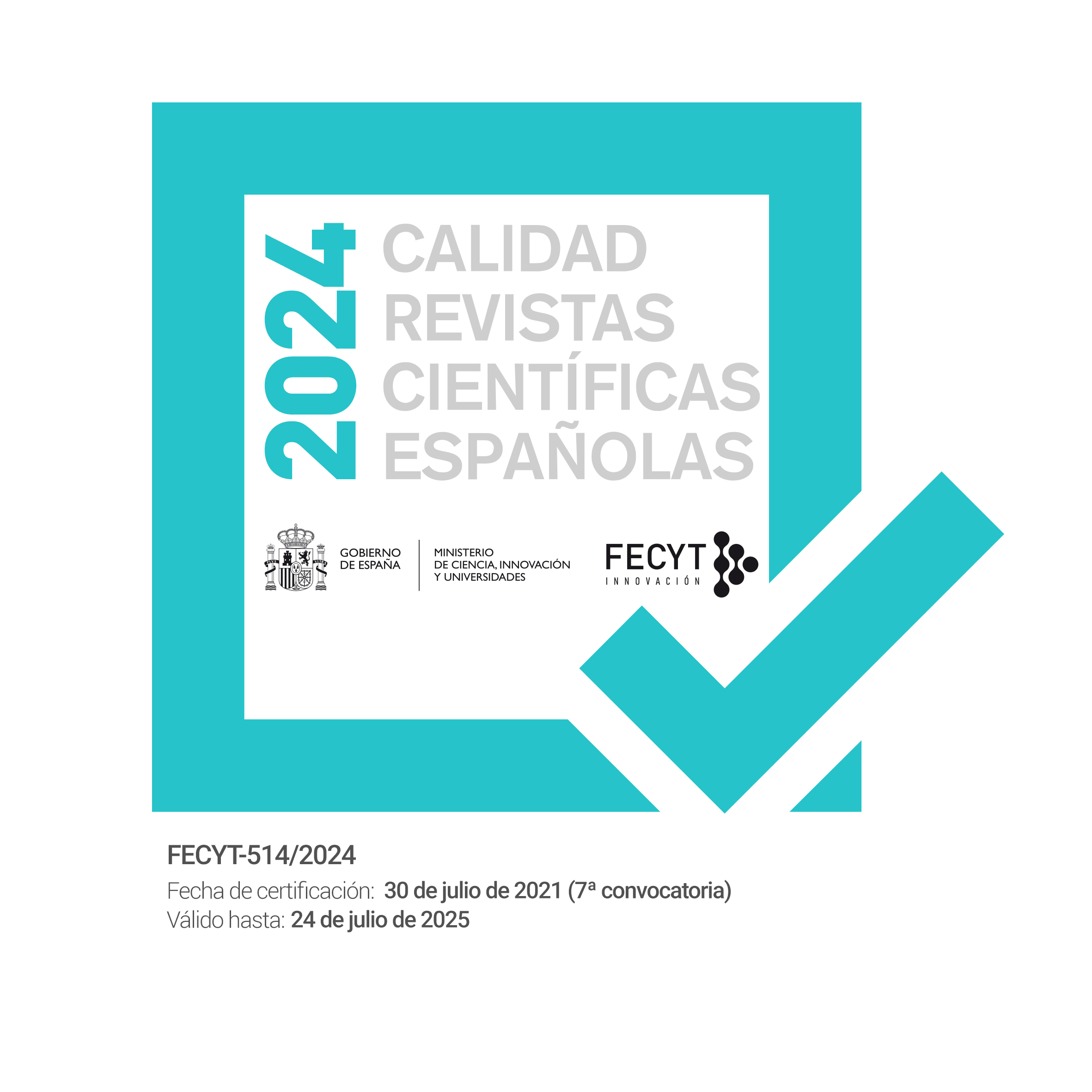“The long roads to forgotten regretted nostalgias”: Traumatic Wounds in the Letters of Zelda Sayre Fitzgerald
DOI:
https://doi.org/10.12795/REN.2021.i25.05Abstract
When twenty-five-year-old Zelda Sayre Fitzgerald asked her husband Scott Fitzgerald to resume her ballet lessons, he saw no objection to it. Fitzgerald thought the lessons would keep Zelda busy while he focused on his novel Tender is the Night (1934). Little did he know then that strenuous dancing rehearsals would lead Zelda to her first mental breakdown. While confined at several mental institutions from 1930 to 1948, Zelda used the epistolary form in an attempt to move from victim to artist. It is through her letters to Scott Fitzgerald that we discover her inner struggles and her longing for a career of her own. This article analyzes the different ways Zelda describes her traumas, as well as the symptoms of nostalgia and regret that can be found in Zelda Sayre Fitzgerald’s correspondence with her absent husband.
Downloads
References
ALLEN, Woody, director. Midnight in Paris. Sony Pictures Classics, 2011.
BRUCCOLI, Matthew J., ed. F. Scott Fitzgerald: A Life in Letters. Macmillan, 1994.
BRYER, Jackson, and Cathy Barks, eds. Dear Scott, Dearest Zelda: The Love Letters of F. Scott and Zelda Fitzgerald. 2002. Bloomsbury, 2003.
BUTTITTA, Tony. The Lost Summer, A Personal Memoir. 1974. St. Martin’s, 1987.
CARUTH, Cathy. Unclaimed Experience. Trauma, Narrative, and History. The Johns Hopkins UP, 1996.
CLINE, Sally. The Tragic, Meticulously Researched Biography of the Jazz Age’s High Priestess: Zelda Fitzgerald. 2002. Arcade, 2012.
EGOROVA, Madame Lubov; July 9, 1930; F. Scott Fitzgerald Papers, Box 40a Folder 1a; Department of Rare Books and Special Collections, Princeton University Library.
FITZGERALD, F. Scott. Tender Is the Night. 1934. Wordsworth, 2011.
---. Typewritten Letter to Egorova, Madame Lubov; June 22, 1930; F. Scott Fitzgerald Papers, Box 40a Folder 1a; Department of Rare Books and Special Collections, Princeton University Library.
GILMORE, Leigh. The Limits of Autobiography. Trauma and Testimony. Cornwell UP, 2001.
GOLDSMITH, Elizabeth, editor. Writing the Female Voice: Essays on Epistolary Literature. Pinter Publishers, 1989.
GRANDAGE, Michael, director. Genius. Lionsgate, 2016.
HEMINGWAY, Ernest. A Moveable Feast. 1964. Scribner, 1996.
KAUFFMAN, Linda S. Discourses of Desire: Gender, Genre, and Epistolary Fictions. 1986. Cornell UP, 1988.
LANDMAN, Janet. Regret: The Persistence of the Possible. Oxford UP, 1993.
MALMAISON (by the doctor at); F. Scott Fitzgerald Papers, Box 51a Folder 7a; Department of Rare Books and Special Collections, Princeton University Library.
MILFORD, Nancy. Zelda, A Biography. 1970. Harper, 2011.
OUTKA, Elizabeth. “Afterword: Nostalgia and Modernist Anxiety.” Modernism and Nostalgia, edited by T. Clewell, Palgrave, 2013, pp. 252-61.
PERRING, Christian. “Telling the truth about mental illness: the role of the narrative.” Trauma, Truth, and Reconciliation. Healing Damaged Relationships, edited by Nancy Nyquist Potter, Oxford UP, 2006, pp. 257-76.
PIKE, Deborah. The Subversive Art of Zelda Fitzgerald. The U of Missouri P, 2017.
SKEEL, Sharon. Catherine Littlefield: A Life in Dance. Oxford UP, 2020.
TATUM, Karen E. “Feature: The Bio-Psycho-Social Effects of Eczema on Zelda Fitzgerald.” Dosis, 18 July 2018, medhumdosis.com/2018/07/18/feature-the-bio-psycho-social-effects-of-eczema-on-zelda-fitzgerald/. Accessed 30 July 2018.
TAYLOR, Kendall. Sometimes Madness is Wisdom: Zelda and Scott Fitzgerald, A Marriage. 2001. Random, 2003.
WAGNER, Linda. Zelda Sayre Fitzgerald. An American Woman’s Life. Palgrave, 2004.
WOOLF, Virginia. “Professions for Women.” Feminist Literary Theory. A Reader, 2nd ed., edited by Mary Eagleton, Blackwell, 1996, pp. 78-80.
“What’s Schizophrenia?” American Psychiatric Association, www.psychiatry.org/patients-families/schizophrenia/what-is-schizophrenia. Accessed 12 Jan. 2020.















